A veteran remembers
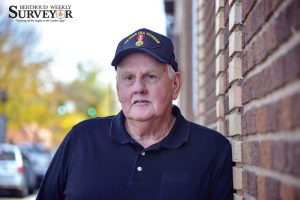
Vietnam-era veteran and Berthoud Surveyor contributor Bob McDonnell reflects on his military service.
John Gardner / The Surveyor
By John Gardner
The Surveyor
In April 1967 a 22-year-old Bob McDonnell laid in a bunk at an American Air Force Base in Takhli, Thailand, unable to sleep.
That last night in Thailand is a night he often remembers; lying in the dark in a shelter called a “hooch,” blanketed by the unrelenting humidity and trying to sleep, processing what was going to happen next.
“I remember Takhli that night before I got on the plane to go to Bangkok to go home, not being able to sleep because I knew that I was done; I was going to be able to go home,” he said.
It was the excitement of knowing he was going to see his family again that kept him awake.
“I’m going back home. I’m going to see family and my future wife,” McDonnell recalled. “And getting out of that place; it was pretty desolate up there.”
The saying about U.S. armed forces veterans that “All gave some; some gave all,” resonates deeply with McDonnell; a nine-year contributor with the Berthoud Weekly Surveyor and a Vietnam-era veteran of the United States Air Force, having served in Thailand as well as stateside during 1963-67.
McDonnell is the first to point out that he isn’t a Vietnam veteran, but rather a Vietnam-era veteran, because he never was stationed in the conflict zone. Nonetheless, he still did his duty for his country as many others did.
“I don’t take away from those guys,” he said of vets who were stationed in Vietnam. “I don’t represent myself as something that I’m not.”
For the Iowa native, Veterans Day is about remembering all veterans; those who gave some and especially those who gave all.
“I think it’s just a time to remember,” McDonnell said, “Especially the ones who didn’t come home.”
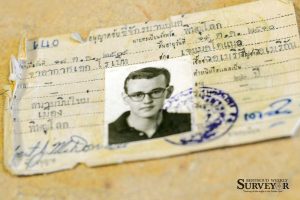
Pictured is United States Air Force Veteran Bob McDonnell’s Thailand driver’s license from his time stationed in Phitsanulok, Thailand during 1966-’67.
John Gardner / The Surveyor
A Veteran’s service
McDonnell joined the service at 18 and took his first airplane ride to Lackland Air Force Base in Texas to attend basic training just one week after graduating from high school. The Vietnam War had been going on for about eight years, but he wasn’t nervous about where his road may lead.
“I was too naïve to be nervous,” he said. “What do you know at 18? I just knew that I wanted to try something.”
Not a stellar student, McDonnell admits he had no interest in attending college, and the military was a good option for him at the time. McDonnell spent the first years of service stateside; six weeks at Lackland AFB, then another six months at Sheppard AFB in Whichita Falls, Texas, where he was trained in diesel-engine mechanics, and he served as a power-generator mechanic. He then spent a year in Topeka, Kan., at Forbes AFB where he was stationed as part of the 548th Strategic Missile Squadron in charge of maintaining the Atlas E intercontinental ballistic missile sites.
“That was my introduction into the Air Force,” McDonnell said.
As the military phased out the Atlas E missiles he was transferred to South Dakota where he spent a year at Ellsworth AFB before being shipped to Thailand.
“Vietnam was getting more prevalent and a bunch of us decided to volunteer to go,” McDonnell said.
Being from Iowa and having limited travel experience outside of his Air Force career, McDonnell was excited for the opportunity to go to Thailand. He arrived in Bangkok in April 1966. He was there briefly before being assigned to the base in Takhli, about 144 miles northwest of Bangkok. The base at Takhli was a big base with hundreds of GIs at the time.
“Takhli was a wild town,” he recalled.
He was part of a communications squadron, and his duties were to keep the diesel generators running that supplied power to the communications facilities. Much of his time was spent maintaining huge diesel generators during his shifts. He lived and worked in little huts called “hooches,” he said.
He then received orders that stationed him further north near the town of Phitsanulok, where he spent the bulk of his time in Thailand. There he again was charged with maintaining a diesel generator that was in the middle of the jungle.
“We were a couple of miles away, unprotected, in a ‘hooch’ in the middle of a rice paddy,” he said. “We’d sit all night in the dark in this hooch.”
It was an isolated place in unfamiliar territory for a Midwestern boy all of 20 years, and it was extremely lonely.
“In the context of the time, there was no radio, no TV,” McDonnell said. “Email and cellphones hadn’t even been thought of, so being this far up in ‘Phit,’ we’d get mail and food flown in once a week. We had no communication with home with the exception of snail mail.”
“You may get five letters at once and then nothing for the next few weeks,” he said.
Coming from Iowa, the heat and humidity was not new, but “I think it was a cranked up a little bit there,” he said. “If it got down to 70 degrees we were freezing.”
They lived on powdered eggs and powdered milk because they were so far north it was difficult to get even basic necessities. The hooch had no plumbing; however, it did have electricity because it was his job to provide it. The crew wasn’t even armed with the exception of an M-16 rifle that was kept at the hooch. But even that was locked up when the sergeant in charge left the camp.
“It’s just crazy to think about what we did,” McDonnel said.
McDonnell made the most of his time in Thailand, however. While he was in Phitsanulok he purchased a motorcycle so he could get around and see some of the foreign country.
“I got a motorcycle to get around while I was up there,” he said. “I wanted to get around and see things and see some country and get around without sweating to death on a bicycle.”
He and a few of the guys offered to work on Christmas Eve that year, because there was nothing else to do.
“We just said that the next one will be better,” he said.
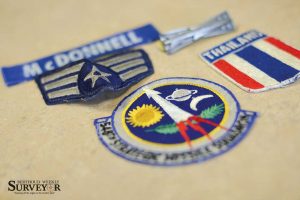
McDonnell has a collection of patches that once adorned his dress blue Air Force uniform.
John Gardner / The Surveyor
A different culture
McDonnell said he’s grateful for how well military members are thanked for their service today. He remembers not being welcomed with open arms upon his return to the states. It was a very different time for veterans.
“When we came home, wearing a uniform wasn’t a very cool thing to do,” he said.
It took him years just to wear his hat signifying his service, he confessed. “Because the mindset when we got home was different than it was today,” he said. “You didn’t want to show up in your uniform any place, whereas now, some young kid goes into a restaurant in uniform, people will buy his lunch and shake his hands. That is really cool,” he said.
Veterans Day is always a special day for McDonnell and all veterans who know the unspoken bond between those who served.
“I think we need to remember those people and the ones who are in today,” McDonnell said. “Because the ones who served, they did the right thing.”
All gave some; some gave all.
“And we don’t want to forget that,” he said.
- March, 01 2018

Thompson School District braces for g...
By Aaron Reynolds The Surveyor There has been a lot of discussion over the last...
- June, 01 2023

Family movie nights return to Fickel ...
By Terry Georgia The Surveyor Movie nights are returning to Fickel Park this summer with...
- April, 10 2020
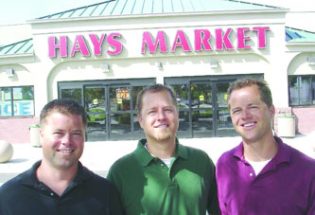
Serving Berthoud: Hays Market focuses...
By Shelley Widhalm The Surveyor Hays Market wants to make sure customers feel welcome, to...
- September, 16 2021

POLICEFILES – September 16, 2021
Monday, September 6 Unattended Death: North County Road 31, Male was bitten by a rattlesnake...
- September, 14 2018

OPINION – November Elections
Letter to the editor I write to encourage readers to elect Sean Dougherty as our...
- December, 14 2017
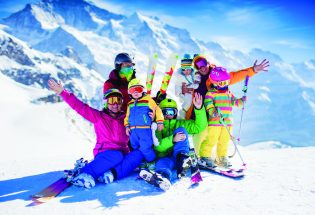
Less stress – move more and enj...
By Dr. Caroline Creager, PT, DPT The Surveyor Holiday times are full of “busy-ness” that...

POLICEBLOTTER
Community News
Northern Water sets C-BT quota at 70% for 2024
Community News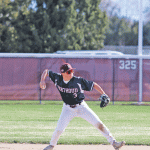

Emotions run high during Revere Property hearing
Community News
Snowpack at 119% above normal
Community News

Karspeck to serve third term as Berthoud mayor
Community News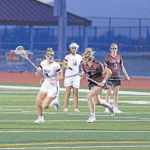

OPINION – No bitchin’ allowed
Community News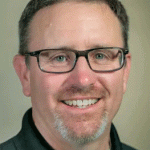
Roy Tripi to become principal of BHS on July 1
Community News
COMMUNITY CALENDAR:
Community Calendar – add an event
Homestead Fine Art Gallery First Fridays OPEN HOUSE
03 May 4:00 PM - 7:00 PM
Homestead Fine Art Gallery First Fridays OPEN HOUSE
07 Jun 4:00 PM - 7:00 PM
Homestead Fine Art Gallery First Fridays OPEN HOUSE
05 Jul 4:00 PM - 7:00 PM
Homestead Fine Art Gallery First Fridays OPEN HOUSE
02 Aug 4:00 PM - 7:00 PM
Homestead Fine Art Gallery First Fridays OPEN HOUSE
06 Sep 4:00 PM - 7:00 PM
Homestead Fine Art Gallery First Fridays OPEN HOUSE
04 Oct 4:00 PM - 7:00 PM

